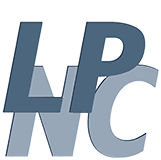- Share
- Share on Facebook
- Share on X
- Share on LinkedIn
The Body and Space team conducts research in the field of bodily representation, action and spatial representation.
In order to interact in our spatial environment, the internal representation of our body must be sufficiently flexible to cope with postural changes, morphological changes as well as possible physical or neurological disorders. Interacting with our environment also involves building an internal model of gravity that can be subject to similar constraints. Finally, our interactions with our environment, through physical or simulated actions, seem to shape the perception we have of our environment. The strength of the Body & Space team is to integrate these aspects which are closely linked to each other, both in healthy subjects and in brain-damaged patients. The originality of the team is also due to its close links with the medical world, thanks in particular to the presence in the team of members of the Army Biomedical Research Institute (IRBA) and the rehabilitation service. neurological at the University Hospital of Grenoble (CHU Grenoble Alpes). The methods used to approach these different facets of bodily representation, action and spatial representation are diverse. They all exploit most of the opportunities offered by the local psychology-neuroscience ecosystem (Grenoble-Chambéry) combining behavioral experiences (virtual reality, postural platforms and parabolic flights for example), brain imaging experiments (EEG, fMRI), neuromodulation (TMS, tACS) with the prospect of developing neurological rehabilitation programs.
Thesis
Body & Space Team Members
- Share
- Share on Facebook
- Share on X
- Share on LinkedIn
